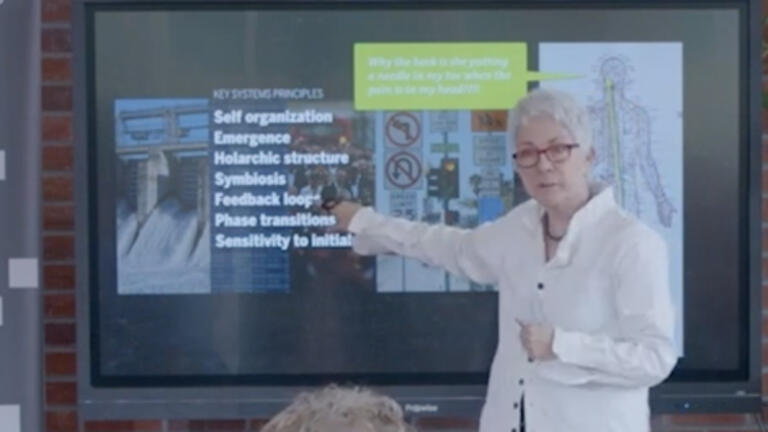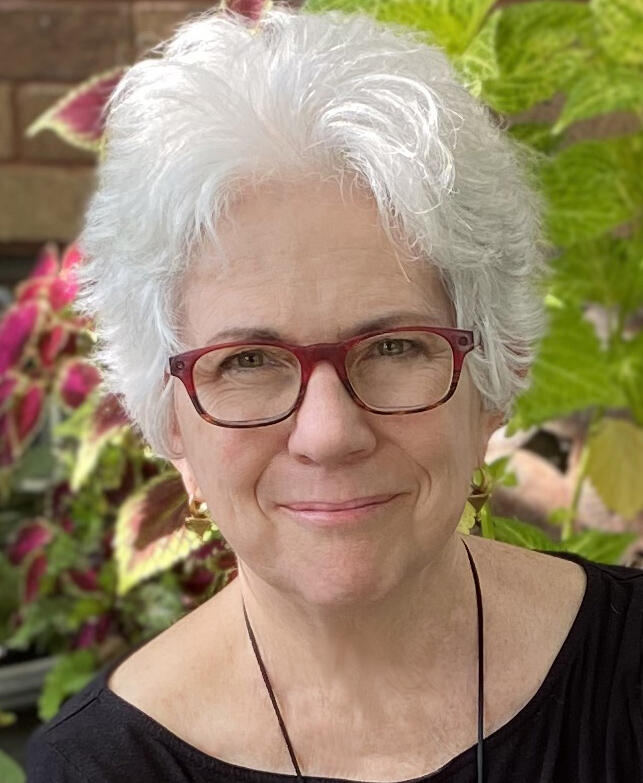Design’s Terry Irwin Developing Transition Design Institute


Professor Terry Irwin, after wrapping up her tenure as Head of Carnegie Mellon University’s School of Design, recently returned from an extensive international trip where she met with design collaborators to discuss the topic of Transition Design. Not only was the trip crucial to advance Transition Design activities and leverage the interest that continues to grow in northern Europe, but it was the next step in launching Carnegie Mellon University’s Transition Design Institute.
Beginning in May, Irwin, along with Gideon Kossoff, Associate Director of the Transition Design Institute, arrived in Finland for lectures at Aalto University, meetings with colleagues, and to attend the Cumulus Conference in Rovaniemi.
“The meetings at Aalto were wonderful,” said Irwin. “It was fascinating to see where there are intersections of commonality with the researchers there.”
Those intersections included meetings at Aalto with Associate Professor Idil Gaziulusoy as well as Associate Professor Julia Lohman, who attended the last Transition Design Symposium (held in the UK in 2016) and now runs a lab called the Department of Seaweed, which explores how seaweed can be the basis for new material design.
Before leaving Finland, Irwin also gave a presentation on Transition Design at Hellon Design, a leading international service design firm with offices in Helsinki and London.
Irwin and Kossoff then headed to the Netherlands for meetings with colleagues at Erasmus University in Rotterdam and Hanze University in Groningen.
Rutger Engels, the Rector Magnificus of Erasmus University, invited Irwin and Kossoff to visit and provide consultation on their initiative to launch a design center and potential design degree at the university. They organized a symposium in which Irwin lectured on the School of Design’s curriculum redesign and design research. Following the symposium, two workshops were held on the topics of design thinking and Transition Design.
At Hanze University, colleagues at Hanze’s Ontwerpfabriek (Design Center) asked Irwin and Kossoff to lead a lecture and workshop on Transition Design for faculty, researchers and members of the non-profit community. Their hope is to use the Transition Design approach to apply for some of the 30 billion Euros that the Dutch Government has made available to transition the region to energy sustainability.
“There was great interest and enthusiasm and we have offered to provide ongoing support as they develop the government proposal,” added Irwin.
After additional stops in London and Canada for meetings, conferences and worksessions, Irwin and Kossoff are now back at Carnegie Mellon University preparing for the launch of the Transition Design Institute. The Transition Design Institute will exist at the college level within the College of Fine Arts as a counterpart to other entities like the Miller Institute for Contemporary Art and The Frank-Ratchye STUDIO for Creative Inquiry.
“Gideon and I will be working together in the coming year to talk to faculty and the Dean on how the Transition Design Institute can serve the Carnegie Mellon University population as well as convening a network of international partners,” said Irwin.
“Transition Design is about seeding and catalyzing systems-level change, which involves local as well as regional efforts to ignite sweeping change. Having an international network means that that we can share knowledge and experience that can be reinterpreted and applied all over the world.”
The first meeting of international partners will take place at the Dartington Estate, home of several previous Transition Design Symposiums, in 2020.
Irwin felt the trip as the best way to end her 10 year headship which saw the School of Design go through numerous and incredible changes, like the complete redesign of all of the school’s curricula, which integrated design for society and the environment into undergraduate and masters curricula, and the launch of a doctoral degree in Transition Design.
“It was an incredible privilege to lead the faculty through the two-and-a-half year process of redesigning all of our curricula,” said Irwin. “It was an important conversation about design and the bigger role that designers can play in transforming our socio-economic and political guidelines.
“CMU is really an amazing place where new ideas like Transition Design are supported at the college and university levels. They’re given the freedom and support to take root and that kind of opportunity couldn’t happen in many other places.”